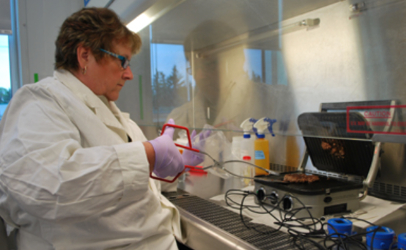In the wide, wide world of Escherichia coli, some might say the pathogen will eventually survive fire and others might say it will survive ice. But more important than any of that is the need to cook hamburger to more than 160 degrees and always use that meat thermometer. 
Sponsored by Marler Clark
